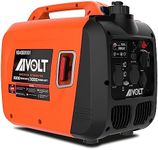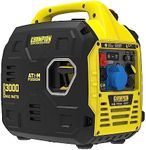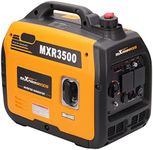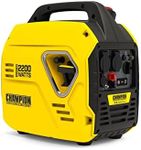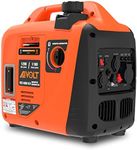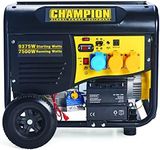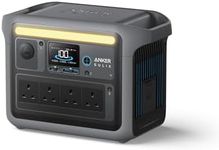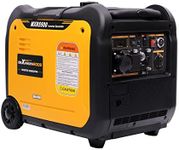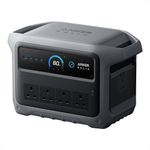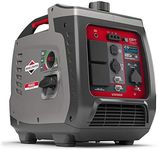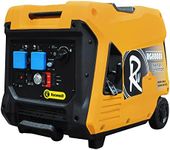Buying Guide for the Best Quiet Rv Generators
Choosing the right RV generator is crucial for ensuring a comfortable and enjoyable experience while traveling. A quiet RV generator can make a significant difference in reducing noise pollution and maintaining a peaceful environment. When selecting a generator, it's important to consider various specifications to find the best fit for your needs. Here are some key specs to look at and how to approach them.Noise LevelNoise level is measured in decibels (dB) and indicates how loud the generator will be when operating. This spec is important because a quieter generator will be less disruptive to you and your neighbors, especially in a campground setting. Generators typically range from 50 dB to 70 dB. For a quiet RV generator, look for models that operate at 60 dB or lower. If you value peace and quiet, aim for the lower end of this range.
Power OutputPower output is measured in watts and determines how much electrical power the generator can provide. This spec is crucial because it needs to match your power requirements for running appliances and devices in your RV. Generators can range from 1,000 watts to over 10,000 watts. To choose the right power output, list all the devices you plan to use and their wattage requirements. For basic needs like lights and small appliances, a generator with 2,000 to 3,000 watts should suffice. For more demanding needs, such as air conditioning, you may need 4,000 watts or more.
Fuel TypeGenerators can run on different types of fuel, including gasoline, propane, and diesel. This spec is important because it affects the convenience, cost, and availability of fuel. Gasoline generators are common and easy to refuel, but propane generators are quieter and cleaner. Diesel generators are efficient and durable but can be noisier. Consider your travel plans and fuel availability when choosing the fuel type. If you prefer a quieter and cleaner option, propane might be the best choice.
PortabilityPortability refers to the ease of moving and transporting the generator. This spec is important because you may need to move the generator around your RV or take it with you on different trips. Portable generators are typically lighter and have handles or wheels for easy transport. They can range from 30 pounds to over 200 pounds. If you plan to move the generator frequently, look for models that are lightweight and have convenient carrying features.
Run TimeRun time indicates how long the generator can operate on a full tank of fuel. This spec is important because it affects how often you need to refuel and how long you can rely on the generator for continuous power. Run times can vary from a few hours to over 12 hours. For extended use, look for generators with longer run times, ideally 8 hours or more. If you only need the generator for short periods, a shorter run time may be sufficient.
Inverter TechnologyInverter technology allows the generator to produce stable and clean power, which is safe for sensitive electronics like laptops and smartphones. This spec is important if you plan to use electronic devices that require consistent power. Inverter generators are typically quieter and more fuel-efficient. If you rely on sensitive electronics, choose a generator with inverter technology to ensure safe and reliable power.
